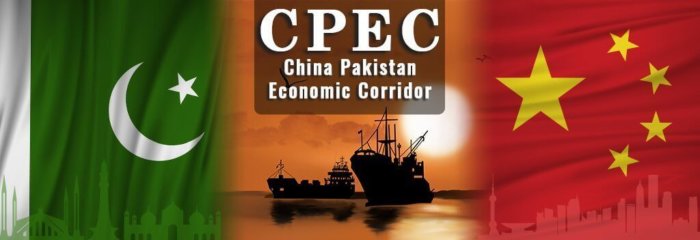Pakistan’s Minister for Foreign Affairs Shah Mahmood Qureshi last week charged India with conspiring to sabotage the China-Pakistan Economic Corridor (CPEC).
He said the evidence of India’s support for terrorist activities had been presented in a press conference, in which the country’s Director General Inter-Services Public Relations Maj Gen Babar Iftikhar also participated.
“The evidence shows how India is backing terrorists and how India seeks to target CPEC projects,” Qureshi said, adding that the concerns expressed in the dossier presented to the media will be raised at the United Nations and all major international forums.
Pakistan’s closest ally China supported the statement made by Qureshi, at the same time, reaffirming its support to Islamabad in fighting terrorist forces.
The Chinese government has said that “any scheme launched to sabotage the building of an economic corridor linking the two countries will not succeed”.

It was for the first time that the country presented evidence of an alleged Indian role in violent attacks in Pakistan and Pakistan-occupied Kashmir. And with China backing the allegations, experts are claiming the move could lend more credence to the charges against India.
Pakistan has been leveling such allegations against India for a long time, however, it failed to convince the world, which has always supported India’s claim of the terror attacks being backed by Pakistan on its soil. The CPEC connection was bound to involve China, the country which is also engaged in a tense stand-off with India at the border.
Chinese Foreign Ministry spokesperson Zhao Lijian, speaking at a press briefing in response to a question about Pakistan’s recent allegations against India, said, “China opposes terrorism in all manifestations and any double standard on counter-terrorism.”
China appreciates the positive contribution by Pakistan to the international counter-terrorism cause, firmly supports Pakistan in cracking down terrorist forces. Attempts that aim to sabotage #CPEC are doomed to fail. pic.twitter.com/IQyGgwkVCw
— Lijian Zhao 赵立坚 (@zlj517) November 20, 2020
Zhao later tweeted, China appreciated the “positive contribution by Pakistan to the international counter-terrorism cause” and “firmly supports Pakistan in cracking down terrorist forces”.
He said that CPEC is a “major pioneering project” of the Belt and Road Initiative. “It is of great significance to not only the common development of China and Pakistan but also regional connectivity and common prosperity,” Zhao added.
He urged the international community to carry out counter-terrorism cooperation and safeguard collective security, saying Beijing was “confident that with the support from the international community, China and Pakistan will ensure the smooth and successful building and running of CPEC.”
What CPEC is all about
The China–Pakistan Economic Corridor (CPEC) is part of China’s Belt and Road Initiative, which aims to connect Asia, Africa, and Europe through a vast network of highways, rail lines, and sea routes. Pakistan hopes to benefit from the $62 billion flagship project by rapidly upgrading its required infrastructure and strengthening its economy by the construction of modern transportation networks, numerous energy projects, and special economic zones.
Beijing has consistently defended Pakistan from Indian allegations, and the two countries have taken their strategic alliance to new levels, with both locked in tense border disputes with India.
Last week, China called for a UNSC resolution for the Kashmir dispute, echoing Pakistan’s long-held stand on the issue. China said its position on the Kashmir issue had been consistent and clear, adding,
“It is an issue left over from history between India and Pakistan which should be resolved properly and peacefully in accordance with the UN Charter, relevant Security Council resolutions and bilateral agreements.”
China holds sway at the international forums, which could greatly benefit Pakistan in creating the narrative of the Indian-sponsored terrorism taking place on its soil.




